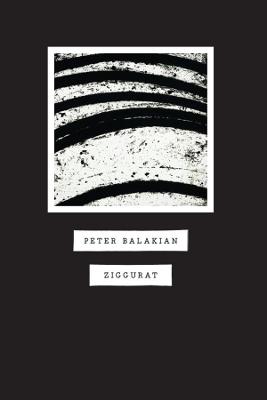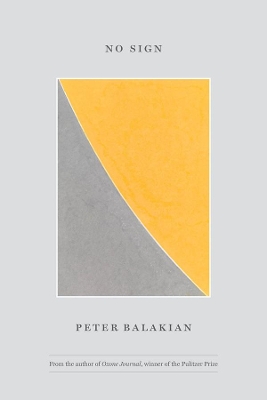Phoenix Poets
2 total works
"Warhol/Electric Chair/'63": The red spreads like Christmas wrapping - the green, a field in a Caucasian rug. It's almost beautiful without the metal plates for the head (though the plug on the floor is visible). Before decorator colors & Hockney, Calvin Klein in the summery Hamptons, before there were - switches to break the flow my mother used to say never touch a radio when you're in the bathtub, never fly a kite near transmission lines. But still, it's furniture still, it's a typical American way to go - it's Sing Sing, the silhouette of Ethel Rosenberg. In the rheostatic air, the absent man heard "She Loves You", the British invasion and the flat line arrived at once. Outside Negroes were eaten by dogs. Johnson was sworn in. Cuba turned red in the green sea. In his first book of poems since his highly acclaimed "June-tree", Peter Balakian continues to define himself as one of the most distinctive voices of his generation. Exploring history, self, and imagination, as well as his ongoing concerns with catastrophe and trauma, many of Balakian's new poems wrestle with the aftermath and reverberations of 9/11.
Whether reliving the building of the World Trade Towers in the inventive forty-three-section poem that anchors the book, walking the ruins of the Bosnian National Library in Sarajevo, meditating on Andy Warhol's silk screens, or considering the confluence of music, language, and memory, Balakian continues his meditations on history, as well as on the harshness and beauty of contemporary life, that his readers have enjoyed over the years. In sensual, layered, and sometimes elliptical language, Balakian in "Ziggurat" explores absence, war, love, and art in a new age of American uncertainty.
Whether reliving the building of the World Trade Towers in the inventive forty-three-section poem that anchors the book, walking the ruins of the Bosnian National Library in Sarajevo, meditating on Andy Warhol's silk screens, or considering the confluence of music, language, and memory, Balakian continues his meditations on history, as well as on the harshness and beauty of contemporary life, that his readers have enjoyed over the years. In sensual, layered, and sometimes elliptical language, Balakian in "Ziggurat" explores absence, war, love, and art in a new age of American uncertainty.
New poetry collection from Peter Balakian, author of Ozone Journal, winner of the Pulitzer Prize.
In these poems, Peter Balakian wrestles with national and global cultural and political realities, including challenges for the human species amid planetary transmutation and the impact of mass violence on the self and culture. At the collection's heart is "No Sign," another in Balakian's series of long-form poems, following "A-Train/Ziggurat/Elegy" and "Ozone Journal," which appeared in his previous two collections. In this dialogical multi-sectioned poem, an estranged couple encounters each other, after years, on the cliffs of the New Jersey Palisades. The dialogue that ensues reveals the evolution of a kaleidoscopic memory spanning decades, reflecting on the geological history of Earth and the climate crisis, the film Hiroshima Mon Amour, the Vietnam War, a visionary encounter with the George Washington Bridge, and the enduring power of love..
Whether meditating on the sensuality of fruits and vegetables, the COVID-19 pandemic, the trauma and memory of the Armenian genocide, James Baldwin in France, or Arshile Gorky in New York City, Balakian's layered, elliptical language, wired phrases, and shifting tempos engage both life's harshness and beauty and define his inventive and distinctive style.
In these poems, Peter Balakian wrestles with national and global cultural and political realities, including challenges for the human species amid planetary transmutation and the impact of mass violence on the self and culture. At the collection's heart is "No Sign," another in Balakian's series of long-form poems, following "A-Train/Ziggurat/Elegy" and "Ozone Journal," which appeared in his previous two collections. In this dialogical multi-sectioned poem, an estranged couple encounters each other, after years, on the cliffs of the New Jersey Palisades. The dialogue that ensues reveals the evolution of a kaleidoscopic memory spanning decades, reflecting on the geological history of Earth and the climate crisis, the film Hiroshima Mon Amour, the Vietnam War, a visionary encounter with the George Washington Bridge, and the enduring power of love..
Whether meditating on the sensuality of fruits and vegetables, the COVID-19 pandemic, the trauma and memory of the Armenian genocide, James Baldwin in France, or Arshile Gorky in New York City, Balakian's layered, elliptical language, wired phrases, and shifting tempos engage both life's harshness and beauty and define his inventive and distinctive style.

